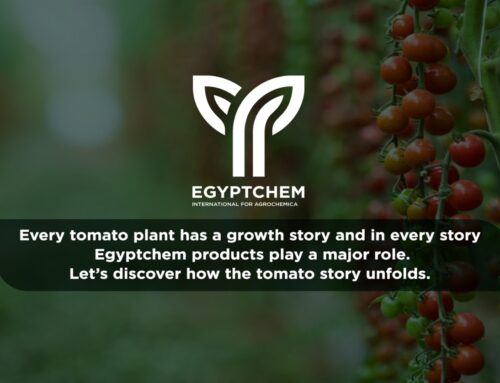
March 13, 2024
Nurturing the Foundation of Farming: Understanding Soil Health
Soil health is really important in farming because it affects how well plants grow and how successful farms are. We’ll talk about why soil health matters and give tips for testing and improving soil so farmers can grow healthy crops and have good harvests.
The Importance of Soil Health in Farming
Soil health is about how fertile and productive the soil is, which depends on lots of things like nutrients, tiny living things, and the soil’s texture and structure. When soil is healthy, it gives plants the nutrients, water, and air they need to grow well and stay strong even when the weather is tough.
Understanding the Significance
- Nutrient Availability
Healthy soil acts as a storage of vital nutrients that plants require to flourish. Sufficient quantities of nitrogen, phosphorus, potassium, and micronutrients are essential for plant growth, flowering, and fruit production. By conducting soil health assessments, farmers can pinpoint nutrient deficiencies and design customized fertilization strategies that optimize crop nutrition.
- Drip Irrigation
Instead of flooding fields with water, drip irrigation delivers water directly to the roots of plants through a system of tubes with tiny holes. This method helps conserve water by minimizing evaporation and runoff, making every drop count.
Drip irrigation not only saves water but also promotes soil health. By delivering water directly to the roots, it prevents soil erosion and compaction, preserving the soil’s structure and allowing it to retain more nutrients. Plus, consistent moisture levels in the soil encourage beneficial microbial activity, further enhancing soil health.
- Exploring the Hidden World of Soil: Microbial Diversity and Soil Testing
Beneath the surface of the soil lies a bustling community of tiny creatures—bacteria, fungi, and earthworms—that work together to keep the soil healthy and plants thriving. This hidden world is crucial for maintaining soil fertility and fighting off diseases that can harm crops. Soil health assessments can reveal the secrets of this microscopic universe. By examining the types and numbers of microorganisms present, farmers can understand the diversity of life within their soil. Armed with this knowledge, they can seek expert advice on how to enhance the activity and diversity of their soil’s microbiome. Practices like crop rotation and adding organic materials can help improve soil health and make farms more productive.
Soil testing is like shining a light into the secrets of the soil. By analyzing soil samples, farmers can learn important details about their soil’s health, such as its pH level, nutrient levels, and texture. This information guides decisions about fertilizing, adding soil amendments, and choosing which crops to grow. Soil testing helps farmers make smart choices that support healthy soil and successful harvests.
Techniques for Soil Improvement
- Organic Matter Management
Enriching the soil with organic matter sources like compost, cover crops, and animal manure can improve soil nutrient retention, structure, and microbial activity. Growers can boost soil health and organic carbon levels by integrating organic matter management into their farming practices over time.
- Cover Cropping
Cover cropping is when farmers plant certain crops in their fields when they’re not growing anything else. These cover crops help keep the soil safe from being washed away, stop weeds from growing too much, and when they’re put back into the soil, they add good stuff to it. Some cover crops have roots that go deep into the ground, which makes the soil better at holding water and lets nutrients move around better.
When farmers use cover cropping, it helps make the soil healthier and makes sure farms can keep going for a long time. Cover crops help the soil stay strong, stop it from being washed away, and make sure there’s enough good stuff in it for plants to grow well.
3. Composting
Composting is a process where organic waste, like kitchen scraps and plant material, is broken down into nutrient-rich soil conditioner. Farmers can collect organic waste and pile it up in a compost heap, where it decomposes over time with the help of microorganisms. Once it’s fully decomposed, the compost can be added to the soil to improve its structure, increase water retention, and provide essential nutrients for plant growth.
Precision Nutrient Management for Large Farms
Big farms use a smart technique called precision nutrient management. With the help of high-tech farming tools and detailed maps of soil nutrients, farmers can give just the right amount of fertilizer to different parts of their fields. This means they can use resources better, cause less harm to the environment, and grow more crops.
Enhancing Soil Health with Savilera’s KORVION Range
Our brand Savilera offers a range of products under the KORVION range, which are micronutrients chelated with highly stable chelating agents. These micronutrients, such as iron, calcium, boron, and magnesium, remain available in the soil for longer periods, allowing plants to absorb them efficiently. By correcting micronutrient deficiencies, the KORVION range promotes increased fruiting, fruit filling, and final crop yield.
The KORVION range includes a variety of products tailored to meet the specific needs of different crops and soil types, including KORVION Fe, KORVION CaO, KORVION CaO+B, KORVION B Plus, KORVION B 18, KORVION BMg, KORVION MgO Max, KORVION SPRING, KORVION SUPER, and KORVION MIX.
By incorporating the soil enhancement techqniues and utilizing the KORVION range into farming practices, farmers can enhance soil health and sustainability, ensuring healthier soils and more resilient farms for years to come.
Conclusion: Cultivating a Legacy of Soil Stewardship
In the world of farming, soil health is fundamental. By testing the quality of their soil and using suitable methods, farmers can improve their soil fertility and structure. This will help their crops grow more vigorously, leading to increased yields. In addition, healthy soil is more resistant to pests and diseases and can better survive extreme weather conditions. By caring for their soil, farmers can ensure their success for many years.


